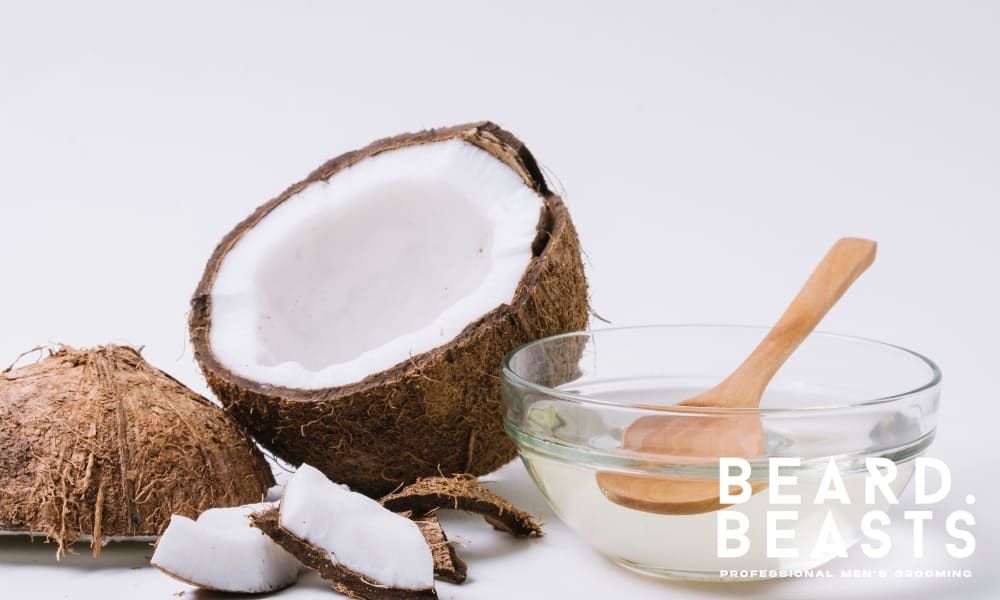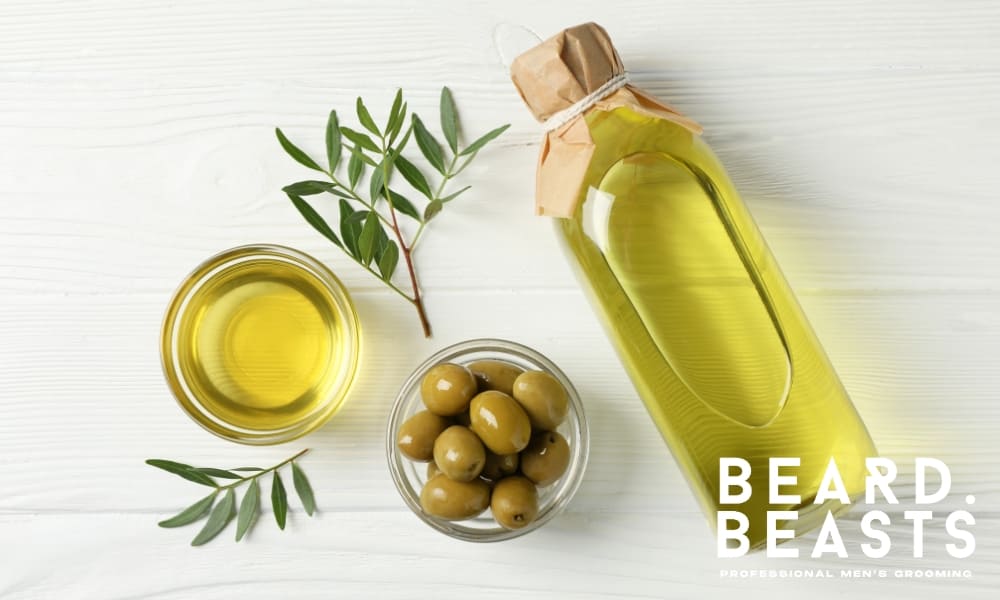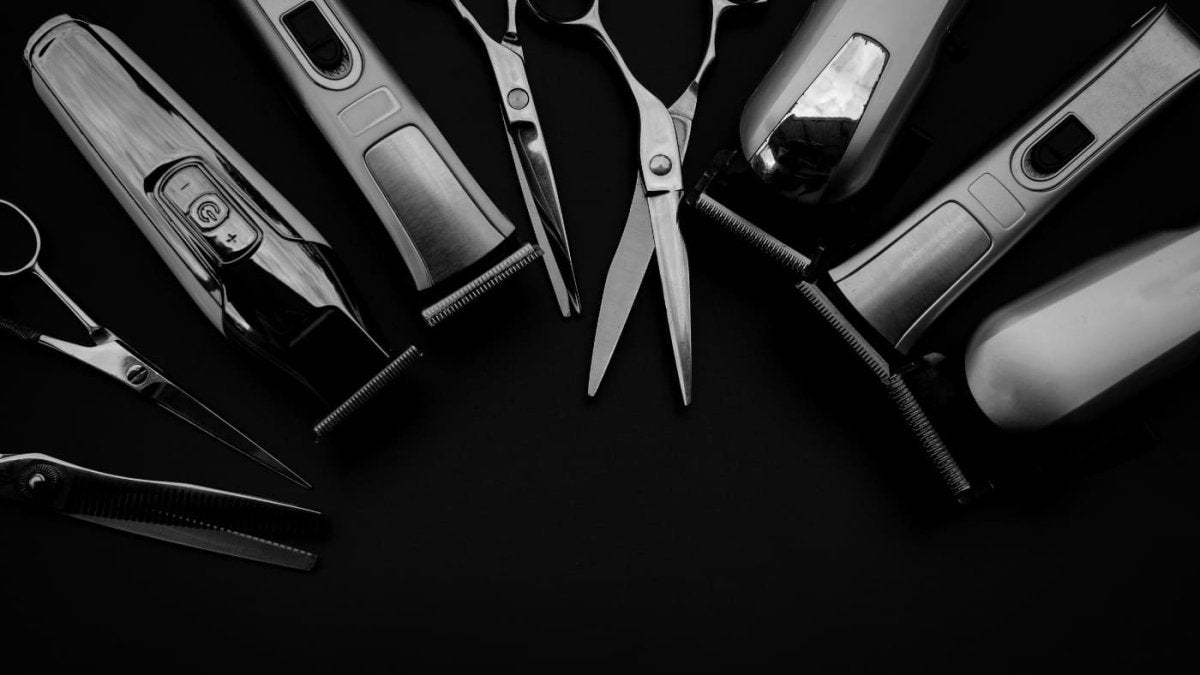Hair clipper oil alternatives aren’t just convenient—they might be the smartest upgrade for your grooming game.
Whether you’re out of standard clipper oil or looking for a cleaner, more affordable option, there are effective substitutes that keep your clippers sharp, smooth, and long-lasting.
In this guide, we’ll break down the best natural and household oils that work just as well—if not better—than traditional products. If you’re ready for a smoother trim without the mess, chemicals, or cost, read on.
Best Hair Clipper Oil Alternatives That Actually Work
Not all oils are created equal—but these hair clipper oil alternatives deliver smooth performance, blade protection, and skin-friendly benefits without the harsh additives.
Whether you want something natural, budget-friendly, or already in your cabinet, here are the top picks to keep your clippers sharp and your grooming routine clean.
Coconut Oil

Natural, affordable, and packed with benefits.
- One of the most popular hair clipper oil alternatives for regular use
- Antimicrobial properties help keep your blades clean and skin-safe
- Adds smooth lubrication without harsh chemicals
- Moisturizes skin while preventing clipper heat buildup
- Widely available and super budget-friendly
If you want a skin-safe, everyday oil that does more than just lube your blades—coconut oil checks every box.
Olive Oil

A kitchen staple that pulls double duty.
- A reliable hair clipper oil alternative when you need a quick fix
- Non-toxic and gentle on skin—great for sensitive skin
- Thicker consistency provides lasting lubrication
- Rich in antioxidants for added skin benefits during trims
- Ideal for infrequent use or dry environments
If you’re looking for a natural solution that’s already in your kitchen, olive oil brings smooth performance with a nourishing bonus.
Jojoba Oil

Lightweight, long-lasting, and skin-friendly.
- Mimics natural skin oils, reducing irritation or clogged pores
- Thicker than most, so it sticks to the blades longer
- Packed with vitamin E and antioxidants
- Great for high-end or professional clippers
- A premium pick for consistent lubrication and gentle care
Want a luxury-level oil without the harsh ingredients? Jojoba is the upgrade your clippers—and skin—deserve.
Baby Oil
Budget-friendly, gentle, and surprisingly effective.
- Hypoallergenic and safe for all skin types
- Helps reduce tugging or pulling during trims
- Thin enough for smooth application but still protects blades
- Easy to find and affordable in large quantities
- Great for regular use if you’re trimming multiple times a week
For a no-fuss, accessible clipper oil substitute that works well on sensitive skin—baby oil gets the job done.
Petroleum Jelly (Vaseline)
Heavy-duty protection in tough conditions.
- Extremely thick and long-lasting barrier against moisture
- Excellent rust prevention, especially in humid climates
- Ideal for long-term clipper storage
- Best used when clippers aren’t in frequent rotation
- Needs to be applied carefully to avoid gumming up the blades
When you want your clippers sealed and protected between uses—nothing locks in blade life like petroleum jelly.
Each of these hair clipper oil alternatives offers its own edge—whether you’re after all-natural care, long-lasting blade protection, or an easy fix from your cabinet.
How to Choose the Right Hair Clipper Oil Alternative
Not every oil works for every user. The best hair clipper oil alternative for you depends on your clipper model, how often you trim, and your environment.
Key Factors to Consider:
Clipper Type
- High-end or professional clippers may benefit from jojoba or coconut oil for long-term care.
- Budget or all-purpose clippers are more forgiving and work well with baby oil or olive oil.
Frequency of Use
- Daily Use: Choose lightweight oils like coconut or baby oil for frequent, mess-free applications.
- Weekly Use: Heavier oils like olive oil or jojoba offer longer-lasting lubrication between trims.
- Occasional Use: Petroleum jelly works great for long-term blade protection and rust prevention.
Skin Sensitivity
- Go natural with jojoba or coconut oil if your skin reacts to additives or synthetic products.
- Avoid petroleum jelly if you’re prone to clogged pores or skin flare-ups.
Humidity & Climate
- High humidity? Choose rust-resistant options like petroleum jelly or coconut oil.
- Dry air? Go for hydrating oils like olive or jojoba to prevent dryness and irritation.
Comparison: Best Hair Clipper Oil Alternatives
Coconut Oil
- Viscosity: Medium
- Best For: Regular use, warm climates
- Use Frequency: Every 1–3 uses
Olive Oil
- Viscosity: High
- Best For: Infrequent use, dry environments
- Use Frequency: Once a month
Jojoba Oil
- Viscosity: Medium-High
- Best For: Sensitive skin, high-end clippers
- Use Frequency: Every 2–4 uses
Baby Oil
- Viscosity: Low
- Best For: Budget-friendly, daily use
- Use Frequency: Every 1–3 uses
Petroleum Jelly
- Viscosity: Very High
- Best For: Humid climates, long-term storage
- Use Frequency: Monthly or as needed
Choose the oil that fits your routine, climate, and clipper setup—and you’ll keep your blades running smooth without the mess or guesswork.
How to Apply Hair Clipper Oil Alternatives
Choosing the best hair clipper oil alternative is step one—applying it properly is what keeps your blades sharp, cool, and ready for every trim. Here’s how to get it right.
Step 1: Power Off and Disassemble
Why it matters: Safety first. You’ll also get better access to the blade components.
- Unplug or turn off your clippers completely.
- Remove the clipper blades (if your model allows) for a thorough clean.
Step 2: Clean the Blades
Why it matters: Oil works best on clean metal—dirt and debris block lubrication.
- Use a small brush or toothbrush to remove hair buildup.
- Wipe the blades with a soft cloth or paper towel.
- For a deeper clean, use rubbing alcohol—but let blades dry fully before applying oil.
Step 3: Apply Your Oil Alternative
Less is more. You only need a few drops to get the job done.
- Coconut, olive, jojoba, or baby oil: Place 2–3 drops along the blade teeth.
- Petroleum jelly: Use a tiny dab and spread thinly with your fingertip or a cotton swab.
Step 4: Run the Clippers
Why it matters: This helps evenly distribute the oil and coats the internal components.
- Turn on the clippers for 10–20 seconds.
- Let the blades move naturally to spread the oil.
Step 5: Wipe Away Excess
Too much oil = sticky buildup. Always clean off any leftover residue.
- Turn off the clippers again.
- Use a dry cloth to gently wipe away oil from the blade surface and casing.
Pro Tips
- Don’t mix oils. Stick to one type to prevent unwanted residue or thickening.
- Keep a dropper or travel bottle nearby for quick re-oiling if needed.
- Oil after every few uses—or more often in high humidity.
Proper application turns any hair clipper oil alternative into a long-lasting maintenance tool. Stick to a clean, consistent routine, and your clippers will stay sharp, smooth, and always ready to go.
FAQs About Hair Clipper Oil Alternatives
Still have questions? Here’s what most people want to know when switching from traditional clipper oil to natural or household substitutes.
Is it really okay to use alternatives instead of clipper oil?
Yes—as long as the oil you’re using is light, non-gumming, and safe for skin contact. Oils like coconut, jojoba, olive, and baby oil are effective substitutes when applied correctly and maintained regularly.
Can I use WD-40 as a hair clipper lubricant?
No. WD-40 is a solvent, not a true lubricant. It can strip away existing oils and cause damage over time. It’s also not safe for use on devices that contact the skin.
What about silicone oil?
Yes—pure silicone oil is safe to use on clippers. It’s clean, slick, and long-lasting. Just make sure it’s skin-safe and free from added chemicals or sealants.
Do I need to oil clippers after every use?
Not always. If you’re trimming daily, oil every 2–3 uses. For weekly grooming, oiling once a month is often enough. You’ll know it’s time when the clippers start to sound louder or feel rougher.
Will natural oils go rancid?
Over time, yes—especially cooking oils like canola or vegetable oil, which should be avoided. Stick to oils with long shelf lives like coconut, jojoba, or baby oil.
Can I use beard oil on clipper blades?
Technically yes, but it’s not ideal. Beard oils are often blended with fragrance and additional ingredients that may gum up your clippers or leave residue.
Do I need to clean off old oil before reapplying?
Yes. Wipe away any buildup before applying a new layer. This prevents clogging, ensures better lubrication, and keeps your clippers running clean.
These common questions clear up the confusion—because knowing what works (and what doesn’t) is key to choosing the right hair clipper oil alternative with confidence.
Final Thoughts: Choosing the Best Hair Clipper Oil Alternatives
You don’t need a specialty product to keep your clippers running like new. With the right hair clipper oil alternative—like coconut, jojoba, or even baby oil—you can protect your blades, avoid rust, and enjoy a smoother trim every time.
Match your oil to your clippers, your skin, and your climate, and you’ll never have to guess again. Whether you’re trimming daily or once a month, smart maintenance means better performance—and fewer trips to buy new blades.
Skip the fancy bottles. Use what works. And keep your grooming routine sharp, clean, and effortless.





